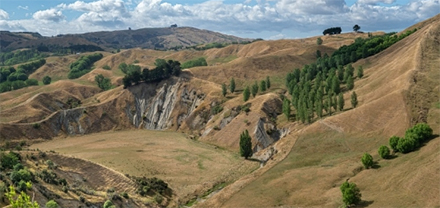New Zealand Hawkes Bay Councillor Will Foley is excited about the proposed trial of the Right Tree Right Place program which he sees as having economic and environmental benefits for the farming community, local economy and wider community. Source: Timberbiz
Under the trial, the Regional Council would offer a loan, and other funding mechanisms to landowners to plant trees on their vulnerable, erodible land.
Manuka, honey, timber and horticulture are being considered, with the greatest potential to deliver a return and offset loan repayments.
“As a farmer, this makes completes sense. Many farmers are planting and growing trees already in vulnerable areas, but we need this to happen on a much bigger scale to ensure our land is resilient to a changing climate.
“For pastoral farmers, this program will help us meet freshwater regulatory targets, provide a diversified income stream, help combat erosion, store carbon, and strengthen biodiversity. It’s a no-brainer really.”
The Regional Council is proposing to pilot the new program on up to five farms to understand the details involved in set-up costs, partnership and delivery options.
“The Regional Council wants to partner with private landowners, investors and forestry companies to offer this tree planting solution, and the programme has already attracted significant private investor interest,” Mr Foley said.
Regional Council is proposing an ambitious tree planting solution to address the region’s significant erosion challenges in a way that retains and strengthens pastoral farms.
“This program is essentially about supporting pastoral farmers to strengthen their farm’s environmental performance, profitability and resilience,” he said.
Erosion is a natural process; however human activity has accelerated the scale and rate of erosion. Around 250,000 hectares of Hawke’s Bay land is highly erodible and vulnerable, according to Regional Council modelling.
“We are facing a significant erosion problem as a region and we must do something innovative now to address this in the face of increasingly destructive floods and droughts,” Mr Foley said.
If the pilot is successful, the scheme may expand considerably.
As this is a region-wide transformational project, it is the Regional Council’s preference to fund the trial through returns from reserves. If successful, the development costs of the trial will be reimbursed to the Council’s reserves.






